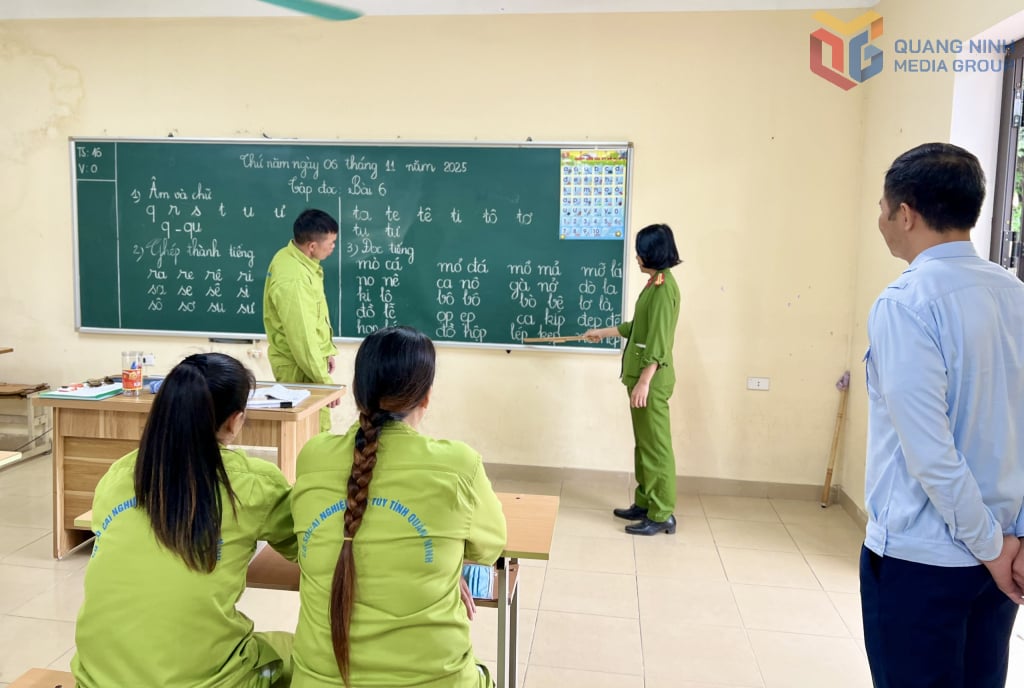
In a not-so-big room, a class of about 20 students of all ages is practicing spelling the alphabet. Below, rough hands, sometimes even trembling, diligently write each stroke. Many students are holding a pen properly for the first time in their lives. Because, for various reasons, they have never been to school. Some come from poor families, struggling to make a living since childhood. Some grew up in remote mountainous areas, with poor conditions. And there are also those who, following the wrong course of life, were soon caught up in the vortex of vices. Now, when entering the journey of drug addiction treatment, they face a seemingly small but very influential deficiency: not knowing how to read or write. “I have never been to school, I have to ask someone to read for me wherever I go. The hardest part is when I catch a bus somewhere, I can’t read the departure and destination; sometimes when I go to work, I get cheated without even knowing it” - a student over 50 years old, shyly shared.
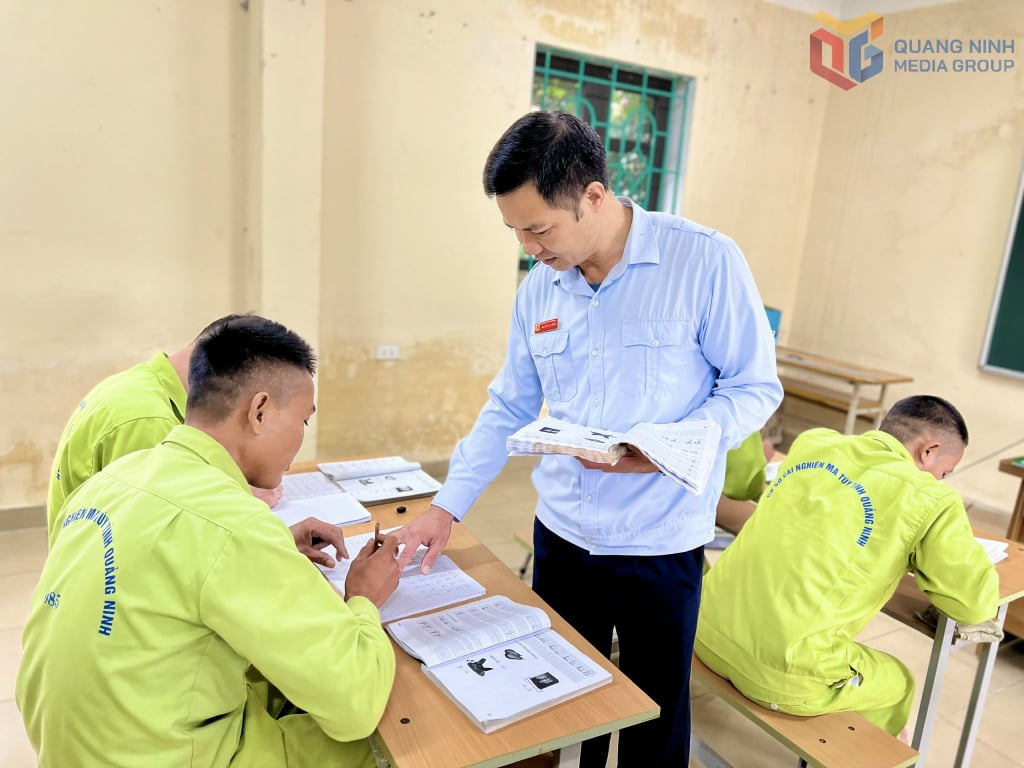
According to statistics, among nearly 600 students being treated at the Quang Ninh Province Drug Rehabilitation Center, there are more than 20 people who are completely illiterate. Most of them are ethnic minorities, with difficult economic conditions and limited educational opportunities, some are from the province, some are from outside the province. Realizing the barriers caused by illiteracy, from receiving treatment regimens, daily activities, to vocational training, the unit decided to open an illiteracy eradication class from the beginning of October 2025 and has maintained it regularly until now.
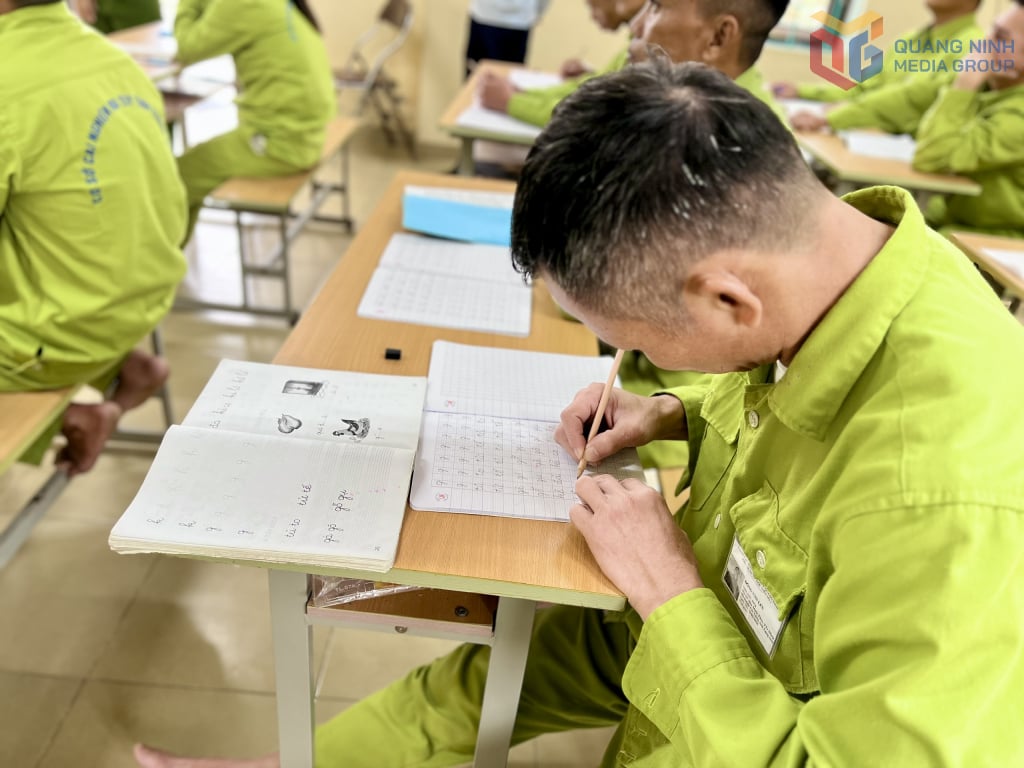
Mr. Nguyen Van Dung, the teacher in charge of the class, said: "Teaching literacy is already a difficult task, but teaching people who have been involved in drug addiction is even more challenging. Many students are older and have a very strong inferiority complex. Some are afraid of being laughed at, others are afraid of contact. We not only teach literacy, but also have to do psychological work and encourage them to be confident enough to open their first notebook." There are lessons where the teacher has to hold each student's hand to write each stroke, from the letter "O" to the letter "A", especially the difficult letters, keeping the correct distance. These small things are important first steps for students to open the door to knowledge that they never dared to think of before.
After more than a month of perseverance, the class has reaped its first results. A 43-year-old female student has just written the first line of a handwritten letter to her daughter, confiding: "My two children are grown up, they are all self-taught. I never dared to think that one day I would write a letter to my children myself. The teachers here are very dedicated. I want to try to rebuild my life."
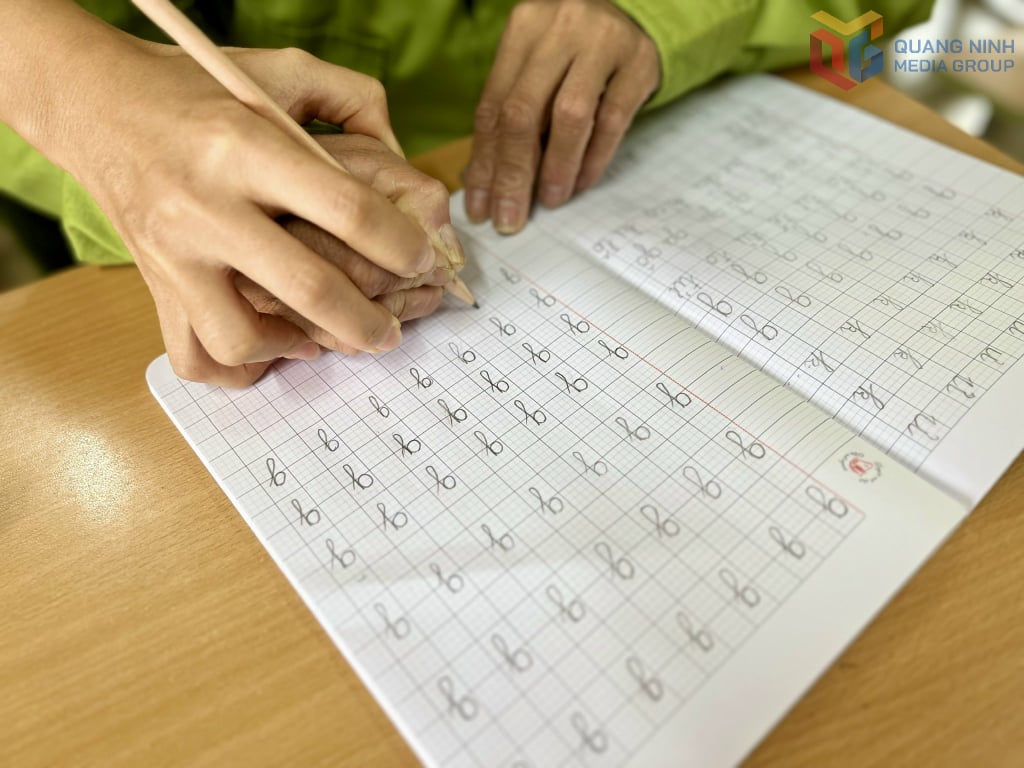
In the classroom that morning, the atmosphere was quiet, only the sound of children spelling regularly echoed. Faces that were once wrinkled with worry now shone with joy when reading the simplest words. They were still putting together letters, not yet able to read fluently, but for them, those were positive changes. Their heads were gray, some had white hair, with their hands still awkwardly writing letters in their notebooks, carefully making the letters round, straight and at the right distance. In their eyes, mixed with a bit of shyness, there was still a determination to learn to read and write, so that when reintegrated into the community, they could read and write. That small classroom had become a spiritual support for those who had made mistakes.
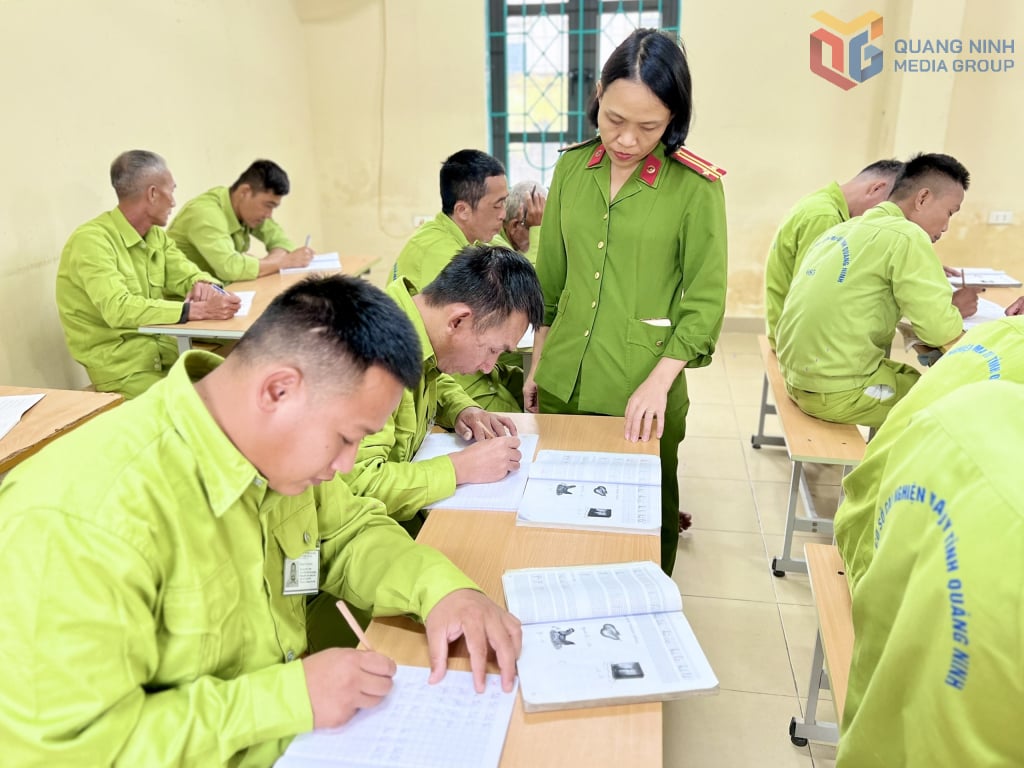
Major Pham Hoang Trung, Deputy Head of the Drug Crime Prevention Police Department, Provincial Police, said: "A literate student also means they have more opportunities to integrate later. Knowing how to read and write helps them access knowledge, learn a profession more easily, and be more confident when returning to the community. For many people, that class not only teaches them to write, but also "rewrites" their own lives with perseverance, desire for change and belief that one day when they return, they can become useful people for their families and society. This is also one of the measures for therapeutic education , as well as a premise for us to continue implementing vocational education for students during the drug rehabilitation process at the facility."
Source: https://baoquangninh.vn/lop-hoc-dac-biet-xoa-mu-chu-trong-co-so-cai-nghien-3384569.html






![[Photo] General Secretary To Lam receives Vice President of Luxshare-ICT Group (China)](https://vphoto.vietnam.vn/thumb/1200x675/vietnam/resource/IMAGE/2025/11/15/1763211137119_a1-bnd-7809-8939-jpg.webp)
![[Photo] Prime Minister Pham Minh Chinh meets with representatives of outstanding teachers](https://vphoto.vietnam.vn/thumb/1200x675/vietnam/resource/IMAGE/2025/11/15/1763215934276_dsc-0578-jpg.webp)





































































































Comment (0)